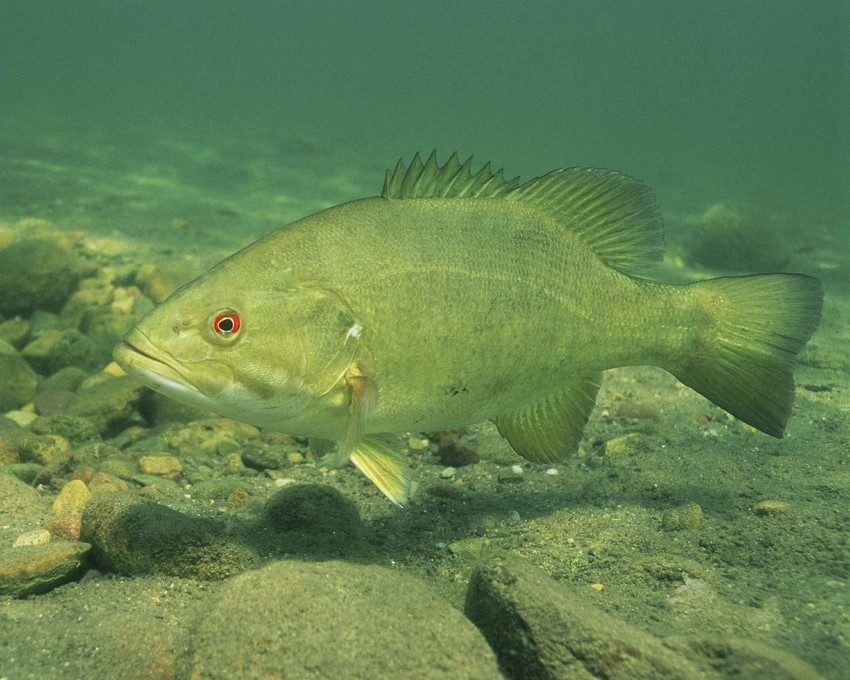FAYETTEVILLE, Ark. – Climate change could slightly boost or substantially reduce the population of smallmouth bass in the Buffalo River, according to a study by University of Arkansas biologists.
The outcome depends on how the climate shifts in Northwest Arkansas, biologists Christopher Middaugh and Daniel Magoulick found. Warmer spring seasonal temperatures and decreased precipitation, leading to reduced flooding, could increase the population of adult fish by 8 percent. But increased spring seasonal flooding or severe summer drought could reduce the number of adult fish by 50 percent or more.
“We found that changes in May temperature and June discharge could benefit smallmouth bass recruitment, but increased flooding and increased drought conditions are likely to reduce adult smallmouth bass abundance below present levels in the Buffalo River,” the study states.
 Dan Magoulick Dan Magoulick |
Middaugh is a research biologist with the Arkansas Game and Fish Commission. Magoulick is a faculty member of the U of A’s Department of Biological Sciences. The study was published in the journal PLOS One.
The southern United States is projected to warm by 5-7 degrees Fahrenheit by 2050, according to the United States Geological Survey. Studies predict more extreme weather events such as floods and droughts, along with a shift in seasonal precipitation that could mean drier summers.
To create the study, the researchers used smallmouth bass population data gathered from 15 samples at four sites on the lower Buffalo River collected by the Arkansas Game and Fish Commission between 1992 and 2012. They combined that with river discharge records and air temperature information taken from a weather monitoring site in Harrison, Arkansas, to build a model that related the environmental variables to the number of smallmouth bass captured at each site. By manipulating those variables, they simulated future conditions that affect the number of fish in the river each year.
The work also took fish harvest into account, concluding that more restrictive regulations could help reduce negative effects of climate change if necessary.
About the J. William Fulbright College of Arts and Sciences: Fulbright College is the largest and most academically diverse unit on campus with 19 departments and more than 30 academic programs and research centers. The college provides the core curriculum for all University of Arkansas students and is named for J. William Fulbright, former university president and longtime U.S. senator.
About the University of Arkansas: The University of Arkansas provides an internationally competitive education for undergraduate and graduate students in more than 200 academic programs. The university contributes new knowledge, economic development, basic and applied research, and creative activity while also providing service to academic and professional disciplines. The Carnegie Foundation classifies the University of Arkansas among only 2 percent of universities in America that have the highest level of research activity. U.S. News & World Report ranks the University of Arkansas among its top American public research universities. Founded in 1871, the University of Arkansas comprises 10 colleges and schools and maintains a low student-to-faculty ratio that promotes personal attention and close mentoring.
Contacts
Bob Whitby, science and research writer
University Relations
479-575-4737, whitby@uark.edu
Daniel Magoulick, affiliate faculty, Biological Sciences
J. William Fulbright College of Arts and Sciences
479-575-5449, danmag@uark.edu
